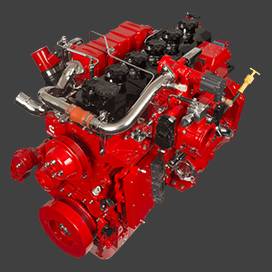Nov . 15, 2024 23:28 Back to list
cleaning rusty brake drums
Cleaning Rusty Brake Drums A Comprehensive Guide
Brake drums are an essential component of a vehicle’s braking system, particularly for those with drum brakes. They are responsible for housing the brake shoes and ensuring the vehicle comes to a safe stop. However, over time, brake drums can accumulate rust due to exposure to moisture, road salt, and other environmental factors. This rust not only affects the appearance of the drums but can also compromise their performance. Regular maintenance and cleaning are crucial to keep your brake drums in optimal condition. This article provides a comprehensive guide on how to effectively clean rusty brake drums.
Understanding the Importance of Clean Brake Drums
Before we delve into the cleaning process, it’s essential to understand why maintaining clean brake drums is critical. Rust can lead to uneven braking, increased wear on brake components, and even brake failure in extreme cases. When rust develops on the braking surface, it can create a rough texture, leading to poor contact between the brake pads and the drums. This not only reduces braking efficiency but can also produce unwanted noise during operation.
Tools and Materials Required
To clean rusty brake drums effectively, gather the following tools and materials
- Safety goggles and gloves - Wire brush or steel wool - Sandpaper (medium and fine grit) - Brake cleaner spray - Clean rags or paper towels - Jack and jack stands - Lug wrench - Brake drum removal tool (if necessary)
Step-by-Step Cleaning Process
1. Preparation Safety First! Before you start working on your vehicle, ensure it’s parked on a stable, flat surface. Wear safety goggles and gloves to protect yourself from debris and chemicals.
2. Lift the Vehicle Use a jack to lift the vehicle and secure it with jack stands. Remove the wheel using a lug wrench to expose the brake drum.
3. Inspect the Brake Drum Before cleaning, inspect the brake drum for any signs of damage or excessive wear. If the wear is severe, you might need to replace the drum rather than clean it.
cleaning rusty brake drums

4. Loosen Rust with a Wire Brush Start scrubbing the exterior and interior surfaces of the brake drum with a wire brush or steel wool. This helps remove loose rust and debris. Be gentle to avoid gouging the metal.
5. Sanding the Surface For areas with more stubborn rust, use medium-grit sandpaper. Sand the surface until the rust is removed and the metal is smooth. Follow up with fine-grit sandpaper for a polished finish. Be sure to wipe away any dust with a clean rag.
6. Clean with Brake Cleaner Spray brake cleaner on the cleaned surfaces to remove any remaining grease, oil, or brake dust. Follow the manufacturer’s instructions and allow it to dry completely.
7. Reassemble and Reinstall Once the brake drum is clean and dry, reinstall it carefully. If you removed the brake drum, ensure everything is reattached correctly. Replace the wheel and lower the vehicle back to the ground.
8. Test the Brakes After completing the cleaning and reassembly process, pump the brakes a few times to ensure they are functioning correctly. Take the vehicle for a short drive to confirm that the braking performance has improved.
Tips for Maintaining Clean Brake Drums
To prevent rust from accumulating in the future, consider the following tips
- Regular Inspections Check your brake drums periodically, especially before long trips or after winter months when road salt is prevalent. - Environment Protection If possible, park your vehicle in a garage or under a cover to protect it from elements that cause rust. - Quality Components When replacing brake components, opt for high-quality materials that resist corrosion.
Conclusion
Cleaning rusty brake drums is a manageable task for those who are comfortable working on their vehicles. Not only does it enhance the safety and functionality of your braking system, but it also extends the life of your brake components. By following the steps outlined in this guide, you can ensure that your braking system remains efficient and reliable. Regular maintenance can prevent rust buildup and save you from more costly repairs down the line. Remember, your safety and that of others on the road depend on reliable brakes. Happy driving!
-
Durable Brake Drum MAZ for Heavy Duty Trucks | High Performance
NewsAug.26,2025
-
FUWA: Premium Quality, Reliable Performance & Innovative Solutions
NewsAug.25,2025
-
Liza Brake Drum: Superior Quality & Performance for Safe Driving
NewsAug.24,2025
-
Iveco Brake Drum | Premium OE Quality for Daily & Eurocargo
NewsAug.22,2025
-
Your Brake Drum Man: Quality & Performance Parts
NewsAug.21,2025
-
Explore Japan: Ultimate Travel Guide & Authentic Experiences
NewsAug.19,2025
